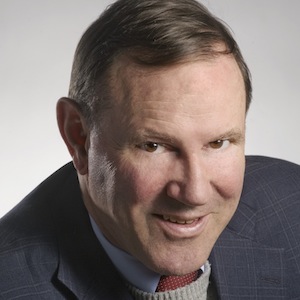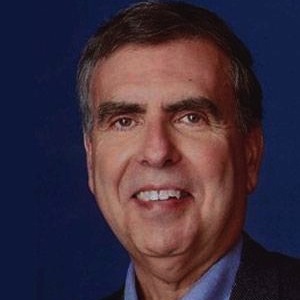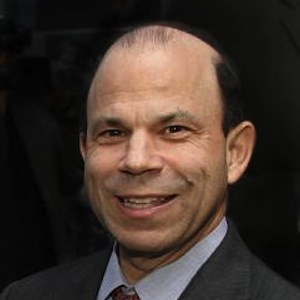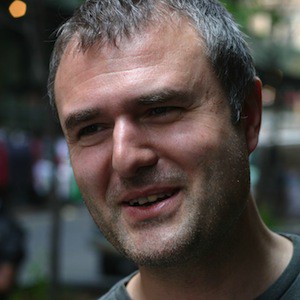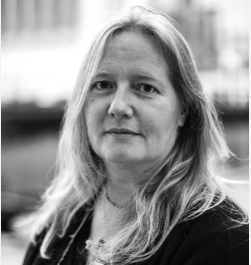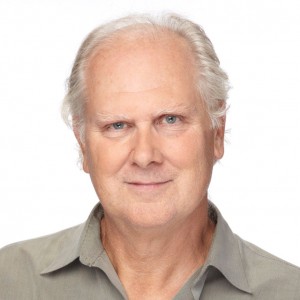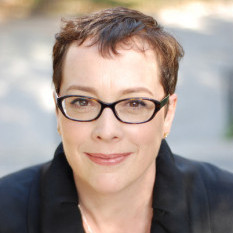John: No. ’80-’81. Oh, ’90-’91.
Michelle: No, I was ’90’-91. I graduated in ’92. That was a specific
California recession. It was a national recession too, but it was
the defense industry collapse, or it was downsizing here. It felt
like coming out in recessionary times.
There weren’t a lot of jobs, and the jobs that were around
were contract jobs. You were a freelancer, but you, basically, had
hours. They probably were violating some labor laws, but I did that
for a while. I did that for the Chronicle, the LA Times, and the
New York Times during this period.
But one thing I did that was a lucky break was that one of
my colleagues at Berkeley, John Battelle, was a co-founder of
Wired. He was starting Wired and was looking for people to
freelance, so I was in the first issue of Wired. I wrote about
computer animation and design. It wasn’t something I knew a lot
about, but I wrote a feature piece about it.
At the time, there was just LucasArts. I don’t even know
there was LucasArts. It was kind of a techie story. That made it
possible to then pitch myself as a business reporter, and I got
into the “Chronicle” as the Internet, the multimedia reporter.
There was no Internet then. Really, people were using the
Internet in very…AOL may have just started. There wasn’t a beat.
I was focused on…There was a hardware person, a software person
and then multimedia. I was focused on…
John: Multimedia.
Michelle: Yeah. Broderbund, Learning Company, CDs, games, maybe Sega
and Nintendo. Gaming and learning. That was in ’94. As an aside, I
was there for two weeks, and the Chronicle went on strike.
During this period, or maybe leading up to this period of
the strike – the strike was only maybe 10-12 days – some people at
the Chronicle started their own publication. Roger McNamee, who’s a
well-known investor in Silicon Valley, said to me, “Why are you
going back to work there? Why don’t you just start your own…just
keep going. Start your own publication. That’s what you should do.”
I just thought, “Crazy Silicon Valley person.” That advice
has been repeated multiple times over the years. That kind of
person who lives here yelling at a person like me to make a change.
During that period, those two years at the Chronicle, the
world completely changed. As it has continued to change. Netscape
was founded and went public during this period of time. Apple
almost destroyed itself. I went and joined the “Mercury News.”
My reason for doing that was mostly because it felt like all
the companies were there. The Mercury News had a serious approach
to how to cover Silicon Valley and had been doing it.
In San Francisco, we were kind of looking down to the
Valley. There weren’t companies in the city. I can’t think of any.
Maybe Broderbund was in Marin. There weren’t even companies in the
Peninsula. They were in Silicon, down in the Valley.
I felt like, if I’m interested, I’ve got to go there, and go
there every day. I was there for 10 years. I was there from 1996 to
2006. Then I left and went to the LA Times for two years. I got
laid-off at the LA Times at the end of 2008. I was covering tech
there. I was covering hardware, Apple, those kinds of companies.
Then I had a bunch of odd jobs. But I worked at Politico for
three years, here, covering Silicon Valley for Politico. Then, a
year ago I went back to work as a columnist. That’s my trajectory.
In that period of where I wasn’t in journalism I had a couple of
jobs outside of journalism, contracting jobs.
John: It’s interesting that almost tech drew you in as an
opportunist. You weren’t a
programmer. You weren’t anything techie in the past. It was just
opportunistic that this job’s here and I’ll work to get that. It’s
an entry into a broader field. It’s an entry into making a living.
Michelle: It was definitely an entry into making a living. I wasn’t
interested in gaming, but I felt like I had to get an interest in
gaming because that was my beat. This is what I have to do. It
wasn’t a natural…
But at some point somebody helped me frame what I liked
about it, which has helped me through my entire career, which is
that I’m interested in, well, the things that you’re interested in,
how the technology is changing society, how is it changing people,
how is it changing work, and who are the people who are behind it?
More of a feature-y approach to it or anthropological approach.
In the process I’ve learned how to cover earnings and cover
a beat as well. A lot of upsides for me is it’s been a living. I’m
hoping that I continue to do it.
John: You have a unique perspective in many ways because of your
hopscotching from different platforms back to them. Talk a little
about how you perceived or how going from a magazine, freelancing,
going to a metro daily, coming here to a major daily, going to
Politico, coming back. Did it make any difference in the journalism
you produced based on where you worked?
Michelle: It’s been a struggle, maybe this is at every publication
is…and I felt that too at the Chronicle, what potentially could
have been plush times at the Chronicle, at a very personal level, I
felt like I was on treadmill of doing the news. Not really…
John: Stepping back?
Michelle: …stepping back, ever. That’s one reason why I left for the
Merc, which I felt like they’re like, you’re daily should have
three or four sources. Your weekend pieces should have… They’re
very specific. I wanted that a little bit more.
But then as I jump back and forth in my career I have that
same sensation or experience which is Politico felt very quick and
commodity. A lot of what what Politico produces
you can’t see because you have to be a subscriber for their
vertical publications. But most people are reading on their
Blackberrys or their iPhones, news that eventually gets to a main
site. We were feeding that audience.
That was kind of interesting. In the old days how I thought
my career would go would be a small paper, bigger paper, bigger
paper, and keep going. But what has happened is that I’ve gone
maybe to like Politico has a lot of prestige and buzz, but it felt
like it was more like a trade publication.
Then I’ve gone back. Now I’m sort of allegedly a dying old
media, but I have a broader platform in some ways, a broader
audience, a broader topic matter.
It does seem to change a lot. The publication, the medium
changes a lot, too. People are mostly reading short bits from here
and they want intelligence. News they can use to turn to somebody
in a meeting and say, “Did you know Schumer just did x, y, and z?”
That’s different than a columnist who’s going to take you someplace
else.
I don’t know if it’s print or mission-driven, because there
is a lot of great long form online stuff out there.
Sometimes I would write features for Politico and it was
fun. And sometimes I like the commodity feeling of just trying to get the news
and try to make a difference in somebody’s day.
What I’m trying to say is I think that every job has been
very, very different.
Even, like say when l went from the Merc to the LA Times, I
had an older view of the LA Times, which was you get time to do
things. I jumped there during a period of intense transition and it
was much more quicker — we need a lot of content fast and online. It
was at the LA Times where I first learned how to use Word Press,
which is a blogging platform that a lot of publications use.
It has been a little bit… I think my dream of, “I want to
be just a magazine writer someday, or long-form,” that doesn’t
necessarily fit my persona or my working style.
John: So this has been fine coming back to this?
Michelle: It has been fine. I had to definitely take a lot of
criticism from people. I like to go and talk to students, so I was
talking to students who were doing some sort
of summer program at Stanford, and I was told, “We can’t invite you
anymore, because we don’t invite print publications anymore.”
I was like, “But Politico prints five days a week and now
has a magazine, and the Merc has got this great app and online
thing. How do you make those divides when media is trying
desperately to erase all those divides?” I would say, “Did I hurt
myself by going back to the Mercury News?”
That’s one thing I tell younger writers, “This idea of the
progression has changed. If you are at a general interest paper, but
you want really to go into auto writing and you go to an auto
trade magazine, that’s not necessarily backwards, in a way.” I
think that those ideas have changed in some way.
John: Let me ask you a follow-up
question. If you were asked that question from a student, do you
feel that difference with the companies you cover? Do they seem to
differentiate more now or less now than they used to in your
accessibility and whether they deal with you and how they deal with
you?
Michelle: I think the Mercury News has lost a lot of its ability
to…
John: Dictate?
Michelle: …dictate what happens here, for better or worse. There’s
a huge tech press that’s very important. Blogs that people don’t
know about, Online publications that people don’t know about
outside of here are very important. I’m thinking of Re/code,
Mashable, all these companies that are very important to tech
coverage, that I read every day, intensely.
I think that the old hierarchy is gone, but, at least, the
Mercury News, I feel like our calling card is still…The parents
and the employees read us, the investors read us, so we still have
a way in.
John: It’s interesting. You think there’s still a hierarchy but a
different one than like before. Rather than journalists being
almost disintermediated, or by-passed it’s…?
Michelle: I think there’s a hierarchy, and that your company and your
brand is what’s so important. With my brand, Michelle Quinn, yes,
that matters. But I don’t think that that word you used dis-…
John: Disintermediated.
Michelle: I don’t think that’s happened completely. You look at David
Pogue.
John: Right.
Michelle: He’s a great brand, but the brand, I think, has gotten
lessened once he cut his ties with The New York Times. I feel
like the New York Times was his bigger brand, that he could be
standing against. I don’t know if it changes access at all. I have
no idea. But it just seems that his power in the tech industry
diminished once he went to Yahoo.
I hope I’m not talking out of turn…
John: No, no, you’re not.
Michelle: But there is always talk and just kind of like what I
described to you about Roger McNamee, do people leave and start
their own? Can you build your own brand? If you leave the Wall
Street Journal or the Mercury News, can you stand alone? Can you
build that or do you need this other brand that a whole bunch of
meaning, which is integrity and an identity?
John: To add to that, the amount of time you have to invest in
building your own brand now, if that’s of interest to you. Be it
tweets, be it Facebook posts, be it all these things that
classically weren’t thought of as reporting the news.
Michelle: Right. I’m not sure can you completely do them. I see that
some people I follow on Twitter who I feel like who aren’t part of
a major organization but who are great reporters, who are
authorities in their field. I think that they could create their
own company or brand on their own. But it would be very niche, I
think.
I’m not sure how to add to that except that it’s a jump
that I haven’t really wanted to do, only because I like being part
of a bigger organization.
John: Understandable. You, too, had to make huge transitions,
because when we think about it, you began your career with an
interest in literature, long-form writing. Yet the drive toward
how we write and how we answer that reporting need, now, to some
degree, people are coming up to us because of what we put out in
140 characters.
Michelle: Right.
John: How do you grapple with that?
Michelle: I don’t feel like I’ve gotten there yet, in some ways. I
Tweet. I follow people, I retweet, but I think the way to do it I’m
not there yet. The way to do it is to use Twitter as that platform, or
Facebook, or LinkedIn, or wherever you want to post, and engage
with people there, particularly, if they engage back with you.
It’s not because I’m against it. I think it’s great. It’s
just a time factor for me. For example, a few weeks ago, I wrote
about Mark Andreessen. He re-tweeted me. He tried to engage. I could
see it happening on Twitter. I was like, “I’ve got to jump in on
that” and I didn’t.
I should’ve I think, because other people were remarking to
me, “Hey, did you see this?” And I didn’t. It was just because I was
doing something else that day and I missed the moment.
I feel like I’ve been inconsistent as a Twitter journalist
in some way. I come in, promote my own stuff a little bit and then
disappear for a little while. I don’t think that’s the way to do
it. I think it’s more to be part of the conversation.
Other tech journalists write about things like Ebola or
Ferguson and I don’t really understand doing that because it seems
like that’s not even your area. In a way, they become people who
amplify what other people are saying, they’re media people.
I don’t think I’m there yet. I want to get better at it.
John: It’s that transition. Look the other transition you’ve
made, or you’ve lived through, when you began it, newspapers. Your
audience…every once in a while you get a letter from someone who
read your story and wanted to respond. It’ll go through the mail
room maybe seven days later you get it.
Now when somebody like Andreessenre-tweets, all of a sudden,
that’s audience, it’s palpable, it’s reachable, and it can
overwhelm you. Is that navigable?
Michelle: I’ve had a view of it as stepping into the stream and stepping
out of it, sort of managing myself a little bit through it. If there’s
a big controversy, I might jump in for a while.
It’s funny, as a columnist, I’ve been learning how to be
more opinionated or feeling like I can give voice to those
opinions. And with Twitter I’m still feeling a little hesitant, like just
more careful about how I write a headline to a tweet.
In a way, just how I characterize people’s tweets. I
don’t really know why I’m hesitant to drive points home. I’ve seen
a lot of people pay a price, I think. At Politico there’s been a bunch of people who
have got in trouble. They look back at their tweet history.
Particularly at a publication like that, where it’s always being
accused of being too right or too left, people are looking at those
tweet histories more intensely.
People are live tweeting debates. They’ve got the
company brand there. This could really be a problem and it has
been a problem for some people.
It’s not just that, I’m thinking that old saying, “You
don’t want to say anything in public that you are going to regret
later,” so in a way, I’m a little hesitant.
John: Yeah. The other thing you seem to be arguing is the old
version of newspaper triage. I have 24 hours in a day. Of these
various ways, where do I spend my time?
Michelle: I think I should be on Twitter a lot more. Why do I think
that? Because I think that’s where to get the audience. I don’t
know if I’m going to get it writing columns at the Merc and re-
tweeting. I’m not sure.
One level, I think, what do I want? I want an audience. I
want to have impact and be talked about. Is it better to find
those interesting columns and write, since
I’ve got a good editor who can help shape my ideas. Or do I
go on Twitter where I have multiple fights or arguments and promote
myself and have a dialogue that then produces a great column or
idea.
Right now, I’m divided. My colleagues who are on Twitter
more, I feel like it’s been to their benefit. It has helped their
reporting too. I think I should be doing it more.
John: When you went back to the Mercury News, you wrote a first
column which you talked about how the valley has changed, when you
first came here versus now. You talked about a bit of swagger. Has
the culture changed?
Michelle: The valley or…
John: The valley. Not just journalism. The culture you’re
reporting on.
Michelle: Yeah. I think it’s changed enormously. In the ’90s,
where I felt like it was mostly people who lived mostly a middle
class life, went to work, and were hoping their invention would
work, to the dotcom era.
I think that value change became much more money. I think
the idea that you would be a tech worker and live in San Francisco,
you would have the benefits and the glories of living in a city.
You would also get to have the benefits and glories of working in
this hot industry.
That was not the idea when I left. It’s definitely come up
as people want it all. I think they should have it all. I think
that people’s idea of stretching time and money was different.
John: The other thing that you mentioned that was different was
that, in the ’90s, in your column, you said that people saying tech
could change the world, which everybody viewed as a boast. Now
everybody views it as a fact.
Michelle: Right. Did I write that? That’s a good sentence.
Michelle: That is a good sentence. Maybe what’s changed is we know
it’s true too. It seemed to me, in the ’90s, people had this Apple
crazy thing, which is you get a bunch of people in a room and go
through a deprivation process as you try to create something.
The reason why you kept all the people together is the idea
that you would change the world. There’s a bunch of companies that
I wrote about then that did this. Most of them didn’t make it.
There was those horrible period of months where they were not
eating, sleeping, and nearly getting divorced or breaking up.
Facebook has been the major change, Twitter and Google,
so I think the companies do feel like this is now a given. We are
changing the world everyday. If you are Uber or AirBnb you’re
disrupting an industry. It has happened, where then it
just seemed part of the bragging.
John: One thing you said earlier, “The difference between now and
then, is now there are hoards of journalists covering tech in the
valley.” When you began, there weren’t hoards. It was very
rarified. Not rarified. You’re covering banking or you’re covering
tech. It wasn’t any bestselling special about tech.
Michelle: Right. It was starting to change in the ’90s. It would be
interesting to talk to somebody that’s been there in the ’80s. I
went to the launch of Windows ’95 in Redmond.
They had Jay Leno on stage to do the whole thing. It seemed
then again, kind of a grasp-y. Tech, yes it’s
operating systems for PCs but it’s Hollywood. Somebody great here is
going to bring this to you and show how special this is.
I think that was kind of new then in some way, this
reaching for that. Now that’s pretty common too. But there weren’t many
journalists there. I met the reporter who covered Tech for the
Seattle Times. There were only a small number of people doing it.
You go to Facebook announcement and there are maybe
several hundred journalists. You think, “Is this industry dying or
is this growing?” If you go to City Hall or you walk into any
newsroom, any metro newsroom in this country, you’re like, “What
happened here? Where are the people?”
John: Yeah. In one of the interviews earlier this week with a
colleague of yours, they said, “One of the problems has been the
influx of money and the influence into the valley over the past 20
years, has made it very hard as a journalist to keep your
distance.”
It becomes almost like the same thing as political
reporting on a campaign. You’re in this bubble. You’re in this
bubble on Tech. would you…
Michelle: I think if you want to have access, that’s where it
gets to be a problem, much like politics. Basically, we are more
manipulated, more controlled than we ever have been.
We sit down with a CEO, and the questions are talked about
ahead of time. There is a PR person there and they know how to go
off the record, they know how to talk a background. They know how
to interrupt or change or limit. That wasn’t the case a while ago.
You would come into a room and you would get all this time
with people. I’ve interviewed the founders of Yahoo and
nobody was there and that was in the ’90s. I think Tech has been on a
learning curve itself and it’s got professionals in to help deal
with people like me.
I don’t worry about that question. I worry about the
thinking. I guess I do think that what happens here is
extraordinary. I’m kind of a booster. Then I wonder if I’m too close
to it and if I’m not critical enough.
For example, the Times’ iEconomy series about Apple.
I think that was kind of an eye opener. Things that had been
reported a lot but putting it together was a great thing, and it’s
a rare thing that’s happened here.
If you look at business journalism, you probably know this,
I think that Matt Richtel was one of the first to win…I think
Diana (Henriques) had won a Pulitzer, but I think Matt covering Tech, he did
it on his attention deficit.
I don’t think it’s an area that has a lot of rigor in a
way. That worries me too. I knew that iEconomy, Matt’s pieces, the
recognition that they got, the Wall Street Journal’s What They Know series.
All these series that have really stood out for being
critical, having rigor, and looking at this industry in a critical
way. I worry that either I’m not doing it or my colleagues aren’t
doing it. We’re just caught up in the commodity of the day or the
latest controversy. -Which the great thing about this area is that
something happens every week, that’s pretty kind of interesting.
John: Here is one riddle that someone posted me. If you have this
industry that’s in such a sentence, you begin overtime to cover it
in a way, like Hollywood as you said. Do we over-cover Apple,
because it’s more…?
Is there a celebrity like approach that we’ve fallen into
as an industry? Because just like Hollywood. The gossip of the
moment is what people want to read. You have to swim against the
tide on that then.
Michelle: You do while you’re covering it. Today, you probably saw
that Zuckerberg gave $25 million to the CDC Foundation. That guy is
very interesting what he’s doing philanthropically. There’s no way
you can criticize that ever. It’s just pure good that’s happened
there.
How do you look critically at what Facebook is doing in
terms of privacy or I don’t know? I feel like we don’t… They
probably feel like we’re on top of them too much, but I do worry
about this question.
The celebrity thing, I think it’s more maybe a problem for
companies or publications that get access, where we don’t as much.
We do get some. We don’t get access necessarily to the talk
leaders, talking about why do they buy that’s like more of a
Journal or a New York Times thing.
I don’t really feel like we need to worry about that. We
are free to worry about, to think about the bigger questions and are
we doing that enough? So, that’s what I don’t know.
John: Well, here’s one for you. If you look back, and you look
back at journalism and you look at tech. Were there any eureka
moments that occurred to you, “Tomorrow is going to be different
than today,” when you stopped and you said, “Wait a minute. This
seems to be bigger than I thought it would,” or has it all been
more or less been an even continuum?
Michelle: I don’t know. I was thinking about that. That’s the one
question that jumped out at me in your list of questions. I could
feel like, “Oh, my…” AOL came out, and I was immediately on it… Even
though I am not like a tech…
I was probably one of the first people I know that was
getting email. I was the first person with AOL. I got a General Magic
device, which was lan early precursor to the iPhone.
The Mercury News was also early in a big way. People have
written a lot about that. So, what happened? Why didn’t we get it?
I don’t know the answers, except that partly we’re trained to
basically be… I don’t know. This sounds so bad.
I feel like I came to this because I wanted to write and to
report and to tell stories. Not to worry about selling ads or how
are we going to get them to make the money?
In a way maybe we were kind of babies in some ways. This
was a horrible way of putting it so this is my most negative view.
Maybe I was kind of like a baby in like sort of a perpetual
childhood of like, “I’m just going to do what I do, which is this.
OK. There’s eBay, Craigslist. We don’t sell classifieds anymore.
Revenue is going down. All of that stuff is over there and I’m not
going to pay any attention to it.” I kind of had that approach for
awhile.
I did a story in ’96 for the Merc. I think it was ’96,
about how people were getting news on their pagers. Of course, they
didn’t have phones. I signed up for getting tennis scores. I would
get who is winning in the US Open.
That could have been a moment where I would say, “My
stories are going to be on here. People won’t get papers. What’s
this going to mean, the transition getting rid of the printing
press?” I didn’t see that then. That could have been a moment, and
I didn’t see it
Then I talked to Mark Anndreessen, who I guess he was
telling everybody in media like the mid 2000’s, “Get rid of your
print, just figure out what your online revenue is and just hire
from there,” but nobody did it.
Individuals did it. Politico did it. One of my colleagues,
Matt Marshall started VentureBeat . Some individuals or groups of
people were able to think that one through but for general
interest newspapers, it’s so hard.
John: Because the legacy revenue was too tough to walk away from.
Michelle: Also, there’s readers. People do care about that general
interest reader, or at least we mostly did. That was the appeal.
Like, yeah, you can go work for a new venture or a specific
publication, but will the guy in the coffee shop read the story?
Probably not. I think that was still an appeal for me too.
I think the big thing that happened to me was when I was
laid off from the LA Times. That’s where I was just like…
I wasn’t part of the first wave. I wasn’t part of the
second wave, but I was part of the third wave I think. I was like,
“I’m working hard. There’s like not even any Fortune 20 companies
in LA, and I’m covering some of them. I got laid off. How did that
happen?”
Then I looked around at the other people who got laid off.
They were people who are just phenomenal journalists. I felt
“Wait. If it’s not personal, then it is just some
horrible like the Poseidon Adventure. They’re just throwing
people out. Maybe there was a decision about me personally, but
maybe there wasn’t. It’s just like bodies.”
Then I started to feel like everything’s changed, because
it affected me personally. That’s how I sort of felt. Now, I feel
like everything’s changed. I’m doing this job for now. I probably
won’t be in the same medium a year or more from now.
John: As you look back, how do you think journalism’s done
covering this? If you look back over 20 years, and if you look back
the anthropology, the effects this has had, and how this… How do
you think journalism is done covering it, the digital change?
Michelle: Well, I think we’ve been OK in other areas. We’ve been
probably good at talking about music or film and Hollywood’s
experience as a separate thing, pirating, and how to figure out a
pay structure and all that stuff, and what does that mean to
studios?
I feel like we’ve done a little bit better looking at other
industries, but here I don’t feel… I feel like I was either a
party to or a victim of what happened. I don’t completely
understand it as a person in the middle of it.
It’s really bizarre to have been this much in it and not
been able to either cover it effectively or zig when everything
else went the other way. That’s the weird sensation about being
here.
I remember when people on my street stopped getting the
local paper, people who worked in government or education,
local government. I was “How can you not get your local
paper? Your boss is going to be in it today.”
There became this sort of faith, “Well, I’ll just hear
about it at the office.” “I don’t really need to know.” “I’ll read it
online.” I remember feeling in the mid 2000’s, “These people are
crazy.” Now, I feel, this is how it is.
John: This is how it is. It’s one of those things. It’s like
we’re watching this meteor come in and stirring up diligently, and
never stop to think, “This is going to destroy you. This is going
to hit you.”
Michelle: Right. I think I am hardwired to be kind of positive. I
feel like I do believe it when people say, “Oh, there’s always going
to be something.” I do believe that. It’s not all going to be crappy
stuff. It’s going to be good quality. People’s need for information
and analysis is still there.”
I guess I am mostly positive even as the meteor is
coming towards me, but I don’t know really why. I feel fine about
myself but when I do meet people who are teenagers who want
to do a career in journalism, I have to think, “Do I encourage
them, or do I warn them?” I always pick “encouraging.” I do this
after wrestling a little about it.
I feel like I got lucky because in a way there was this
career for people who had kind of a vague idea of what they wanted
to do with life, and this career was there. I got lucky. I don’t
know if that’s going to be there for that kind of “human interest”
kind of person.
John: You say at the same time, “You’re hardwired.” Is that safe
to say, you’re optimistic about the future of journalism?
Michelle: Yeah, I am. Look at a publication like BuzzFeed. It
got its start. It got Ben Smith from Politico. Look at what it’s gone
through this past year in terms of growing pains in terms of what it
is to have integrity?
I just find what’s happened there just fascinating and
great. Where they are at the end is way better than they were in
the beginning.
I feel here’s a whole new publication that has already
broken a lot of stories, will probably improve as a model. I don’t
know. I guess I’m feeling mostly optimistic about it.
I think that if you want to survive, you’ve got to have
ethics and integrity and quality. I think that’s where they will
go, as they also kind of stroke other things. I haven’t really been
following VICE as much.
I guess I am mostly optimistic that there will be more
creation of publications, online publications, or maybe app-only
publications. And they will be done by some non-journalists and
journalists with the end result will be to make the product better.
Or like Rupert Murdoch, you close down the paper. If you
really mess up, you just shut it. There’s a guy, who’s been around
for a long time.
John: And he walked away.
Michelle: He walked away from it, yeah.
John: This has been wonderful. It’s been helpful.
Michelle: I don’t know what I would have done if you had told me 20
years ago. I don’t know what I would have done. I don’t know,
because I like the print publications so much.
But 20 years ago, I was at the LA Times. They’re like, “Oh,
man! We’ve got problems, because all of our readers are like 55.”
It makes sense that they’re all 75 now.
John: Absolutely. Look, you can say this disruption was natural.
You can say, we should have seen it coming. Many of us did not. My
colleagues did a thing saying, “It was like a riptide. The more you
fight, the harder you get pushed out.”
Well, you can make some recoveries, but other recoveries
you can’t make. It’s just exhausting. I like you’re an optimist.
Michelle: Maybe it’s more survival. I need the job.
Michelle: I’m just going to keep working in it.
John: That’s good!
Michelle: It’s such a great job. When I’ve not worked in journalism,
it’s like you’re half a person, you’re half a woman. You can’t be a
full human being (without) asking questions. The rest of the world doesn’t
work like that.
John: We have had an incredible license.
Michelle: Yes. I still will want that as a working person.
John: Excellent! Wonderful!

